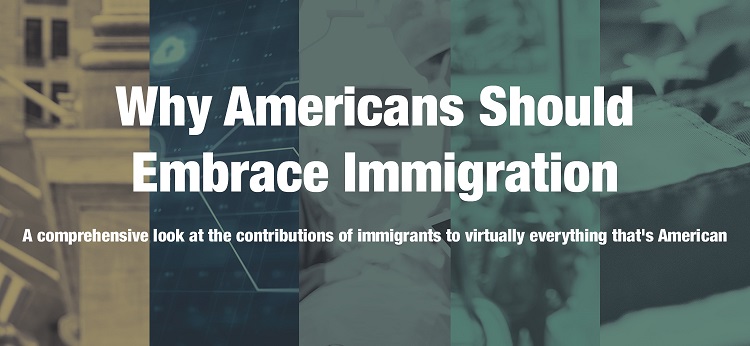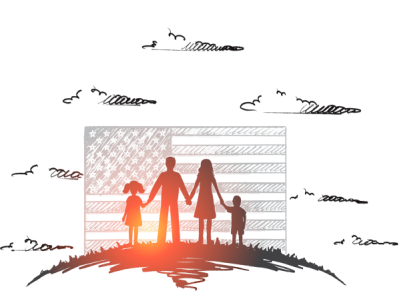
As Americans we sometimes take for granted the holidays that we celebrate. After all, there are so many holidays with various religious and cultural origins. But each holiday begs the question, “For what reason do we celebrate this day?” On so many of these special days, we need to be thanking the immigrants that came before us. For without their willingness to take a risk by leaving one home and venturing to the United States for a new home, we wouldn’t celebrate these holidays. Immigrants bring diversity, innovation and some of the best traditions from around the world. Here are just six holidays we wouldn’t celebrate without immigrants.
Independence Day (4th of July)
Today, July 4th, the United States of America becomes 248 years old. The men who framed our Constitution and government, often called our founding fathers, either immigrated from or were the descendants of immigrants from counties like England, Scotland, France and the West Indies. Their diverse backgrounds contributed to the founding principles and values of the United States.
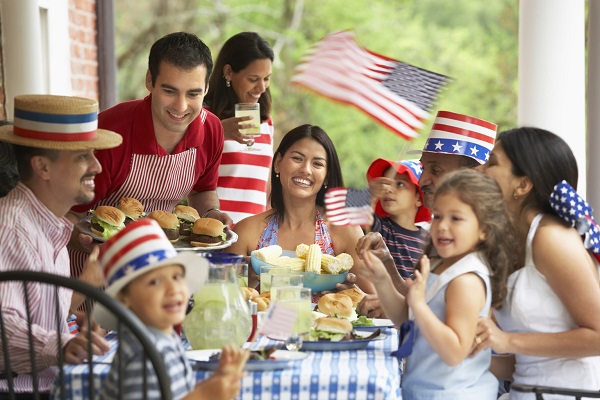
Countless immigrant soldiers from many countries fought for the American Revolution against the British Crown. Several thousands of these immigrant soldiers were critical to the efforts of the U.S. Continental Army against the British, and many sacrificed their lives. Two major-generals, Lafayette of France and Casimir Pulaski of Poland, made significant contributions toward the U.S. victory.
But if it weren’t for the thousands of brave men, women and children who originally colonized the Americas, there wouldn’t be anything to fight for. After all, the colonization of the Americas marks the beginning of U.S. immigration.
Columbus Day
Before the colonists populated the East Coast, only Native Americans resided in what is now the United States. This holiday marks Christopher Columbus's arrival in the Americas on October 12, 1492. While its celebration is controversial and seen by many as problematic due to the impact on indigenous peoples, it is still recognized as a celebration of Italian-American heritage.
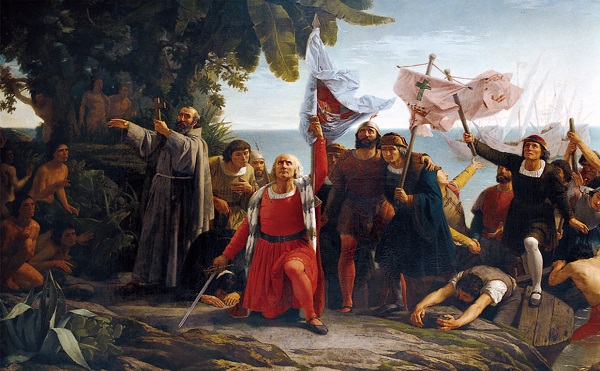
Columbus Day became a federal holiday in the United States in 1937 and is celebrated on the second Monday of October. It’s a federal holiday but the observance of Columbus Day varies by locale.
St. Patrick’s Day
Saint Patrick’s Day, or the Feast of Saint Patrick, is a cultural and religious celebration held each year on March 17. The date marks the traditional death date of Saint Patrick (c. AD 385–461), the foremost patron saint of Ireland. For the Irish, St. Patrick’s Day commemorates Saint Patrick and the arrival of Christianity in Ireland.
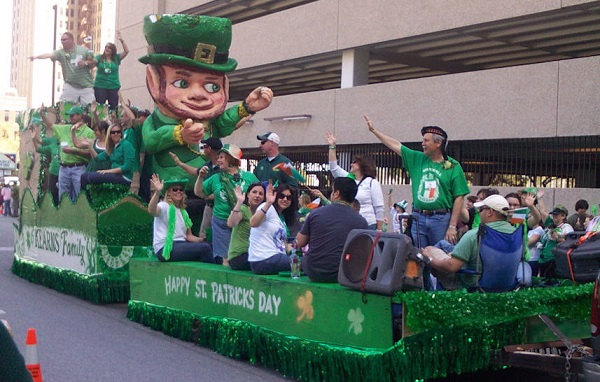
In the United States, St. Patrick’s Day has evolved into a celebration of Irish heritage and culture. The holiday includes public parades, parties, and the wearing of green attire or shamrocks. Historically, the Lenten restrictions on eating and drinking alcohol were lifted for the day, which has encouraged and propagated the St. Patrick’s Day tradition of alcohol consumption.
A massive number of Irish immigrants came to the United States between 1840 and 1910. Their heritage blended into the American fabric and their legacy lives on traditions like St. Patrick’s Day.
Mardi Gras
What a party! Mardi Gras, which is French for “Fat Tuesday,” refers to events of the Carnival celebrations. It begins on or after the Christian feasts of the Epiphany (Three Kings Day) and ends on the day before Ash Wednesday. Mardi Gras is traditionally the night of eating richer, fatty foods before the ritual fasting of the Lenten season. For Christians, it’s a pre-Lent celebration. The holiday is celebrated all over the world in places like Brazil, France, Germany and the Netherlands. But Mardi Gras arrived in North America as a French Catholic tradition in the late 17th century.
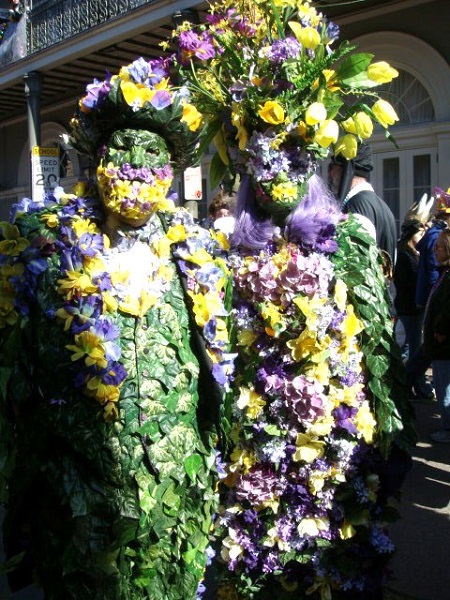
King Louis XIV sent the Le Moyne brothers to defend France’s claim on the territory of Louisiane, which included what are now the U.S. states of Alabama, Mississippi, Louisiana and part of eastern Texas. On March 3, 1699, French explorers Pierre Le Moyne d'Iberville and Sieur de Bienville arrived at the mouth of the Mississippi River, which they named "Pointe du Mardi Gras" because it was the eve of the holiday.
New Orleans is now the epicenter of American Mardi Gras celebrations. The city draws thousands of tourists and revelers each year for the Carnival events, including the Mardi Gras parade. Revelers dress up in costumes (in the traditional colors of purple, green and gold) and celebrate by tossing beads and doubloons to the crowds from the parade floats.
Cinco de Mayo
Cinco de Mayo (Fifth of May) marks an 1862 battle in Puebla, Mexico. A small, outnumbered Mexican army defeated the French. The unlikely victory was quickly erased when the French returned and defeated the Mexicans. The actual defeat and expulsion of the French forces by the Mexicans occurred in 1867.
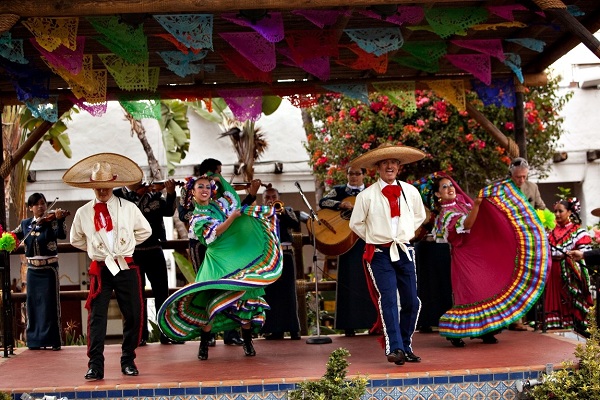
In Mexico, the commemoration of the battle continues to be mostly ceremonial, such as through military parades. In the United States, the date has taken on a significance beyond that in Mexico. It’s likely that the origins of Cinco de Mayo celebrations lie in the responses of Mexicans living in California in the 1860s to French rule in Mexico at that time. At first the holiday gained popularity in areas with large Mexican-American populations, like Los Angeles, Chicago, Houston and San Jose, but later took off as a celebratory day in the 1980s. Now, Cinco de Mayo has become associated with the celebration of Mexican-American culture.
Passover
The Feast of the Passover, also called the Feast of Unleavened Bread, is a Jewish holiday that commemorates the liberation by God from slavery in ancient Egypt and their freedom as a nation under the leadership of Moses. As the Jews fled, they ate unleavened bread, and from that time they have allowed no leavening in their houses during Passover, bread being replaced by matzoh.

In Judaism, a day begins at dusk and ends the following dusk. Thus, the first day of Passover only begins after dusk of the 14th of Nisan and ends at dusk of the 15th day of the month of Nisan. Passover commences on the 15th of the Hebrew month of Nisan and lasts for either seven days (in Israel and for Reform Jews and other progressive Jews around the world who adhere to the Biblical commandment). It may last eight days for Orthodox, Hasidic, and most Conservative Jews (in the diaspora). On the first night of Passover (Passover Seder), family and friends gather to celebrate and re-experience the exodus from Egypt and the birth of the Jewish nation. The Seder table is set very elegantly, and during the Seder guests enjoy four glasses of wine and a gourmet holiday feast.
In the 1840s, large numbers of German Jews immigrated to the U.S. because of persecution, restrictive laws and economic hardship in their home country. By the 1880s, thousands more Jews left their homes in Russia, Austria-Hungary, and Romania to escape overpopulation, oppressive legislation and poverty.
Other holidays that have significant contributions from immigrants or are celebrated largely due to immigrant influence include Oktoberfest and Diwali, the Festival of Lights.
These holidays highlight the diverse cultural influences that immigrants have brought to the United States, enriching the country's cultural tapestry and giving Americans many reasons to celebrate throughout the year.
So as you watch the fireworks colorize the darkness on this Fourth of July, remember how immigration has delivered and continues to fuel the United States with a bright inflow of ideas, customs and people. Our American holidays are a reflection of that greatness.
About CitizenPath
CitizenPath provides simple, affordable, step-by-step guidance through USCIS immigration applications. Individuals, attorneys and non-profits use the service on desktop or mobile device to prepare immigration forms accurately, avoiding costly delays. CitizenPath allows users to try the service for free and provides a 100% money-back guarantee that USCIS will approve the application or petition. We provide support for the Adjustment of Status Package (Form I-485), Naturalization Application Package (Form N-400), and several other immigration services.
Want more immigration tips and how-to information for your family?
Sign up for CitizenPath’s FREE immigration newsletter and
SAVE 10%
on our immigration services


